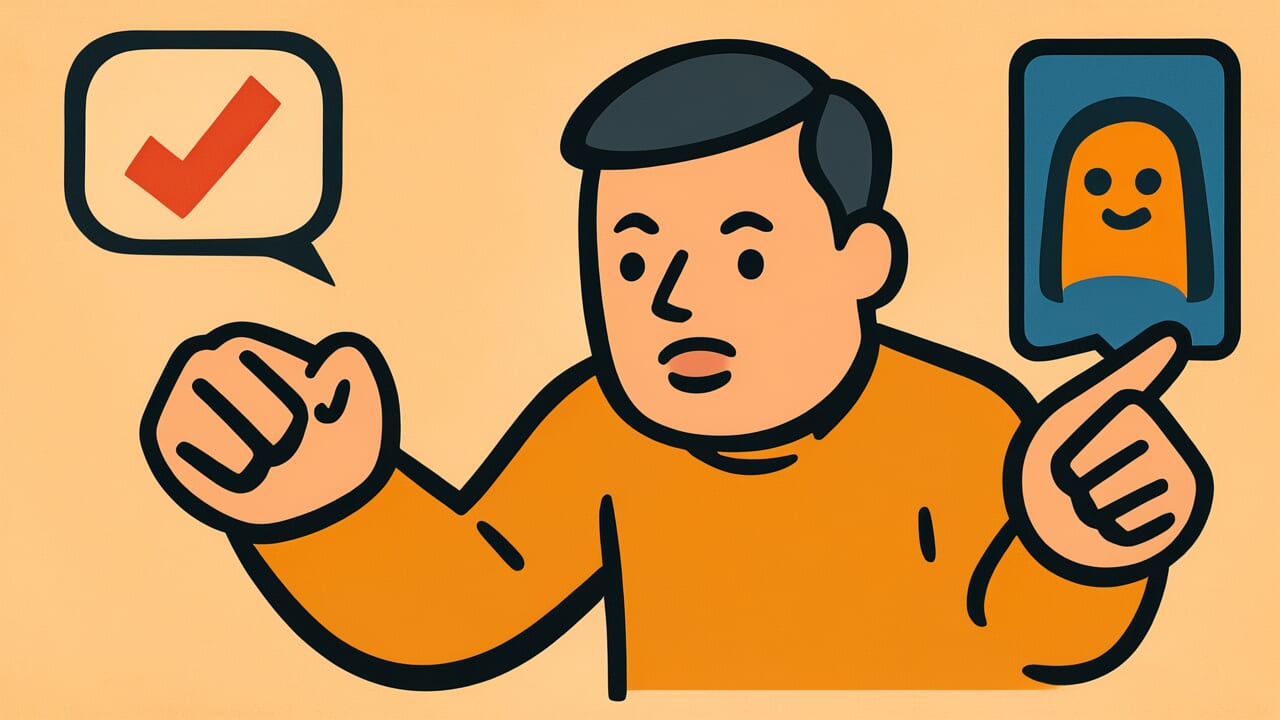How to Read “Hate hate is the reverse side of love”
Nikui nikui wa kawaii no ura
Meaning of “Hate hate is the reverse side of love”
This proverb means that feelings of hatred are actually the flip side of love.
Even when someone appears to hate another person on the surface, deep affection or concern often hides beneath that emotion.
This expression is commonly used in intimate relationships like romance or parent-child bonds.
We feel betrayed because we had expectations of someone. We get angry when things don’t go our way because we care deeply about that person.
The proverb captures this complex emotional mechanism.
Even today, we use this saying to explain situations where someone says “I don’t care anymore” or “I hate you now,” yet can’t stop thinking about that person.
When we truly don’t care about someone, we don’t even feel strong emotions like hatred toward them.
The very act of hating intensely proves deep attachment or love for that person.
Origin and Etymology
The exact first appearance of this proverb in literature is unclear. However, people likely used it commonly during the Edo period.
The structure contrasts “nikui” (hate), a negative emotion, with “kawaii” (love), a positive one.
The word “ura” (reverse side) shows these two emotions are two sides of the same coin.
Traditional Japanese views on emotion held that strong feelings always have another emotion on their flip side.
Noh theater and kabuki consistently portrayed love and hate as inseparable opposites.
People have long observed this human psychology: the stronger your attachment to someone, the deeper your hatred becomes when they betray your expectations.
The repetition in “nikui nikui” (hate hate) is also fascinating.
This doubling suggests not just hatred, but repeatedly thinking “I hate them.” It shows a state of constantly thinking about that person.
If you truly didn’t care about someone, you wouldn’t even bother hating them.
The act of hating itself reveals strong interest in that person. This insight lies at the heart of this proverb.
Usage Examples
- She says she hates him, but it’s “Hate hate is the reverse side of love” – she actually worries about him more than anyone
- I’m harsh with my son sometimes, but it’s “Hate hate is the reverse side of love” – just my way of showing affection
Universal Wisdom
This proverb speaks to the universal truth of human emotional complexity and depth.
Our hearts are never simple. Love and hate, joy and sorrow, hope and disappointment.
These emotions aren’t opposites. They’re actually two sides of the same coin.
Why is hatred the flip side of love? Because hating requires enormous mental energy.
If we truly don’t care about someone, we remain indifferent. Hating means continuously thinking about that person and continuing to expect something from them.
That expectation itself proves our love.
In human relationships, the most frightening thing isn’t hatred but indifference.
Hatred contains passion. The source of that passion always includes some form of love or expectation.
When parents scold their children or lovers get angry with each other, a hidden wish exists: “I want you to be this way.”
Our ancestors understood this complex emotional mechanism.
This proverb teaches us not to be fooled by surface emotions. We must understand the true feelings beneath them.
Emotions are multilayered. Even when they seem contradictory, that contradiction itself makes us human.
This deep insight lives within “Hate hate is the reverse side of love.”
When AI Hears This
When we think of emotions as physical energy, an interesting pattern emerges.
Both hatred and love are actually the same “high-energy state.”
In physics, we call the phenomenon where water becomes ice or steam “phase transition.”
Just changing the temperature condition makes the same H2O molecules take completely different forms.
The key point is that all states maintain high energy. Near absolute zero, almost nothing happens.
Human relationships are surprisingly similar to this.
When you feel strong hatred toward someone, your brain consumes massive amounts of energy.
You think about that person, process emotions, and prepare reactions.
Actually, when you feel love, your brain’s activity patterns are remarkably similar.
fMRI research confirms that romantic feelings and hatred activate overlapping brain regions.
The true opposite is “indifference.” This is a low-energy state, close to psychological absolute zero.
The brain allocates almost no resources to that person.
That’s why hatred can transform into love, but strong emotions rarely emerge suddenly from indifference.
In terms of energy conservation, phase transitions between high-energy states occur easily.
But moving from low-energy to high-energy states requires large external energy input.
Hatred is simply another phase at the same energy level as love.
Lessons for Today
This proverb teaches modern people not to judge their emotions superficially.
When you feel anger or hatred toward someone, pause and think.
Why do you feel such strong emotions? Deep love or expectations might actually be hiding beneath.
This perspective is especially important in relationships with people you care about.
After fighting with parents or arguing with a romantic partner, you might think “I hate them now.”
But look at the other side of that emotion.
If you truly hated them, you wouldn’t even fight in the first place.
You get angry because you have expectations. You feel hatred because you care deeply about that person.
This understanding also helps repair relationships.
When someone is angry, recognizing the love and expectations behind that anger reveals openings for dialogue.
When sorting through your own emotions, don’t get trapped by surface hatred.
Notice the true feelings at the root. This awareness helps you choose more constructive actions.
Emotions are complex. That’s exactly why they’re worth engaging with carefully.



Comments